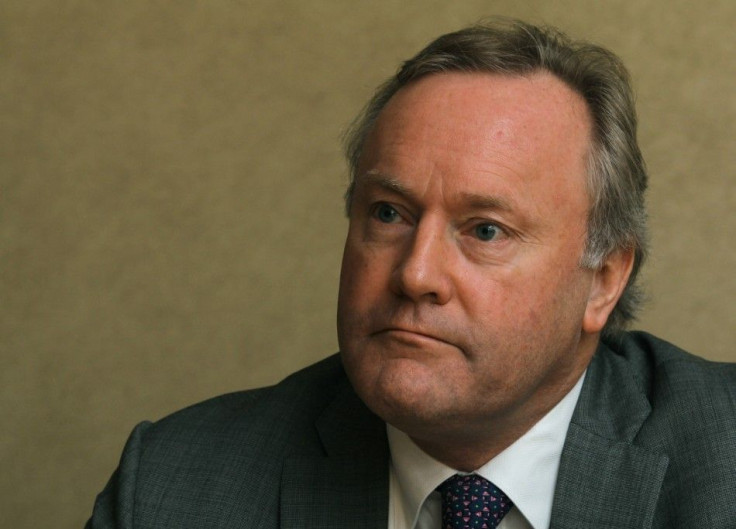Schroders Plc Prefers Cash and Gold, Not Equities

(REUTERS) -- Schroders Plc holds the lowest position possible in equities and has extremely high levels of gold and cash, reflecting its concern about recession in the developed world and a failure to resolve the euro zone debt crisis, its chief investment officer said on Tuesday.
We are at the pessimistic end, Alan Brown told the Reuters 2012 Investment Summit.
There are no easy places to hide and we are about as low in equities as we can be, at 30-33 percent, with virtually nothing in the European region, Brown said at the London leg of the summit.
Schroders is making contingency plans for a possible euro zone break-up, avoiding using banks that clear euro trades through some peripheral euro zone centers, although it believes Greece is less likely to leave in the next 12 months, Brown said.
The asset management firm, which has 182 billion pounds ($285.88 billion) under management, favors corporate credit and high-yield debt, mainly in the United States.
It is holding high levels of cash and record high levels of gold, and a small short position in euro/dollar.
The downbeat view is based on Schroders' expectations for a recession next year in the euro zone and Britain, and anemic growth in the United States.
Brown said EU leaders, set to meet on Friday, needed to offer more than a beefed-up Maastricht, and must show a willingness for the EU to move towards a full transfer union to calm markets.
If we saw a resolution that we felt comfortable with, we would push up our equity position pretty rapidly and it could mean a move back into Europe, he said.
Asked whether Italian debt was attractive at current high yields, Brown said: I do not see any reason to get in front of the train, I would wait to see the outcome. It's too much of a lottery, too much of a crapshoot.
Greece could leave the euro zone in the next 12 months, but was more likely to do so on a longer-term horizon, Brown said.
The fund house, however, was making contingency plans and war gaming for a possible break-up in the euro zone, including looking at the legal jurisdiction for swap and other agreements and collating emergency staff phone numbers for the illiquid Christmas and New Year period, Brown said.
He said the firm was avoiding using banks that clear euro foreign exchange trades through centers such as Madrid, but was sticking to Frankfurt, the likely centre of any shrunken euro zone.
We will only have euro exposures with countries who clear through the core, and preferably Germany.
© Copyright Thomson Reuters 2024. All rights reserved.






















